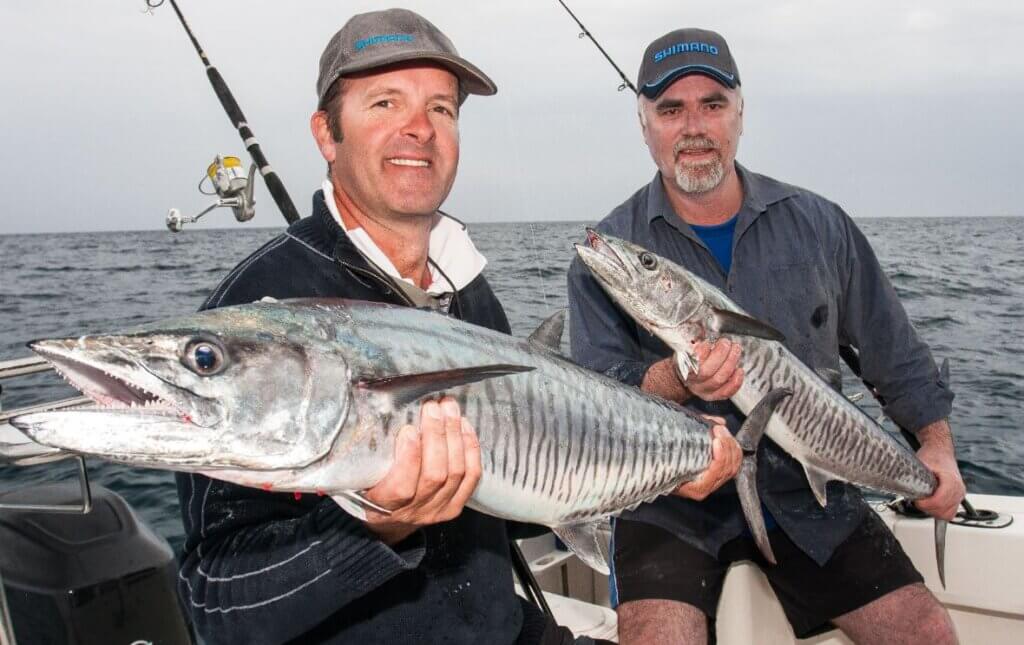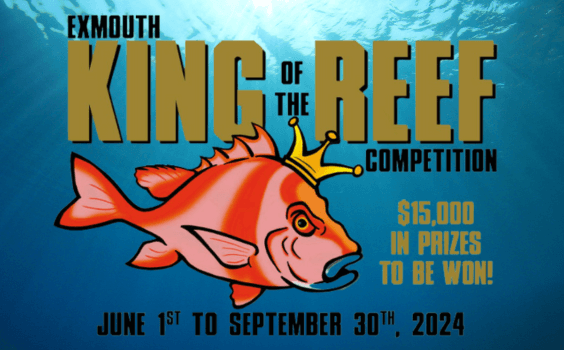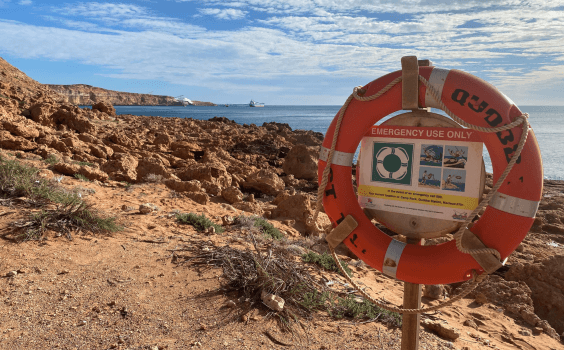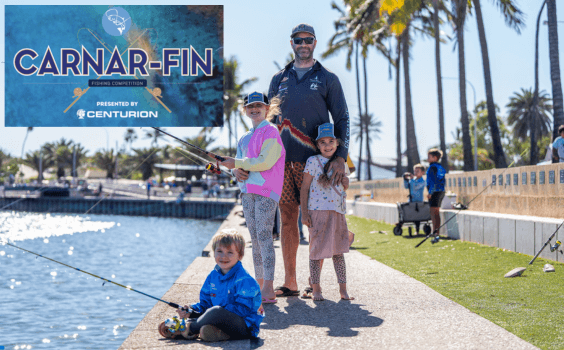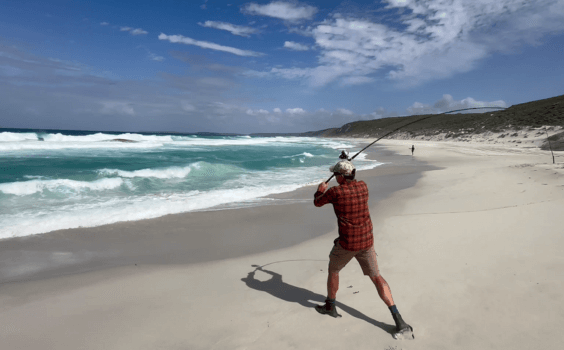Hard-fighting, mean-looking and great-tasting — Spanish mackerel are among Western Angler editor Scott Coghlan’s favourite species to catch. In this week’s edition of Scott’s Species, written exclusively for Recfishwest, Scott outlines why he believes Spaniards are one of the most underrated table fish on offer.
Species: Spanish mackerel, Scomberomorus commerson.
Eating: 4 stars
ID: Blue to grey on their back, with many narrow vertical bands along their sides and a grey-silver colour on their belly.
Spanish mackerel are a very popular species among recreational anglers, as they look good, offer a great fight and taste good on the table.
In fact, I reckon they are very much underrated as an eating fish.
This point is especially relevant given the expected changes to trip limits in WA amid the State-wide Possession Limit review, with Recfishwest proposing a “trip limit” which includes “20kg of fillets where no more than 10kg can comprise demersal fish”, meaning anglers will need to target pelagics if they want to take home 20kg fillets.
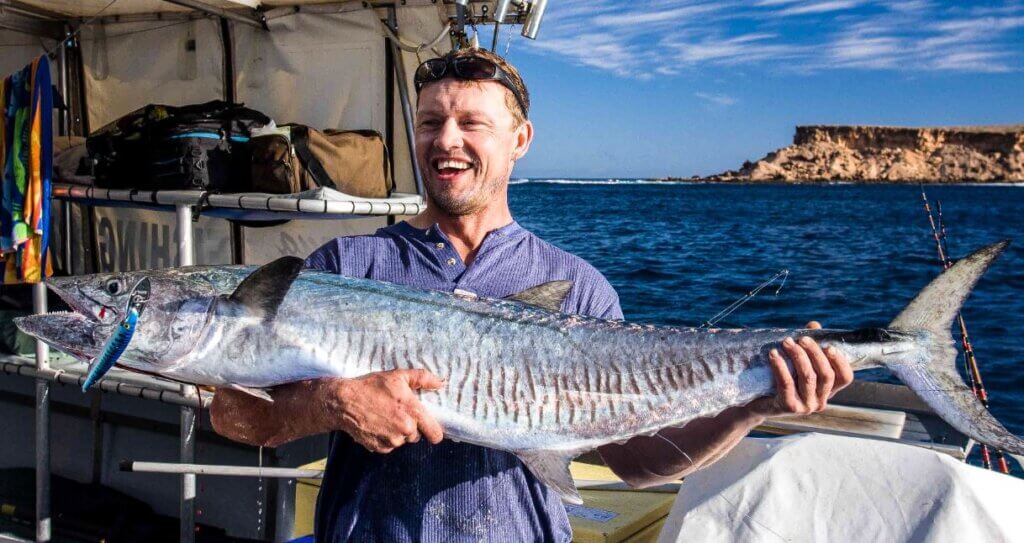
Spaniards are prolific and widespread, with no concerns over their stock status at the moment, so they should be a welcome catch for anyone who wants to take home a feed.
It is the time of the year when they usually push into Perth waters and in recent weeks a number have been caught in the metro area.
There are locations that often fire for them including West End and the south side of Rottnest Island, along with the western edge of the Three Mile Reef, and the northern end of Cockburn Sound, while Coventry Reef is also worth a try.
They will show up in shallow water around Perth and have been caught from shore at the moles and in Cockburn Sound. They have been seen free-jumping off Dunsborough in recent weeks as well.
Spaniards can be found in most Australian waters, from Cape Leeuwin on the west coast all the way across the top of the country to southern New South Wales.
The speedsters can grow up to almost 50kg, but most fish will be from 8kg to 15kg. Smaller fish are often encountered in large schools.
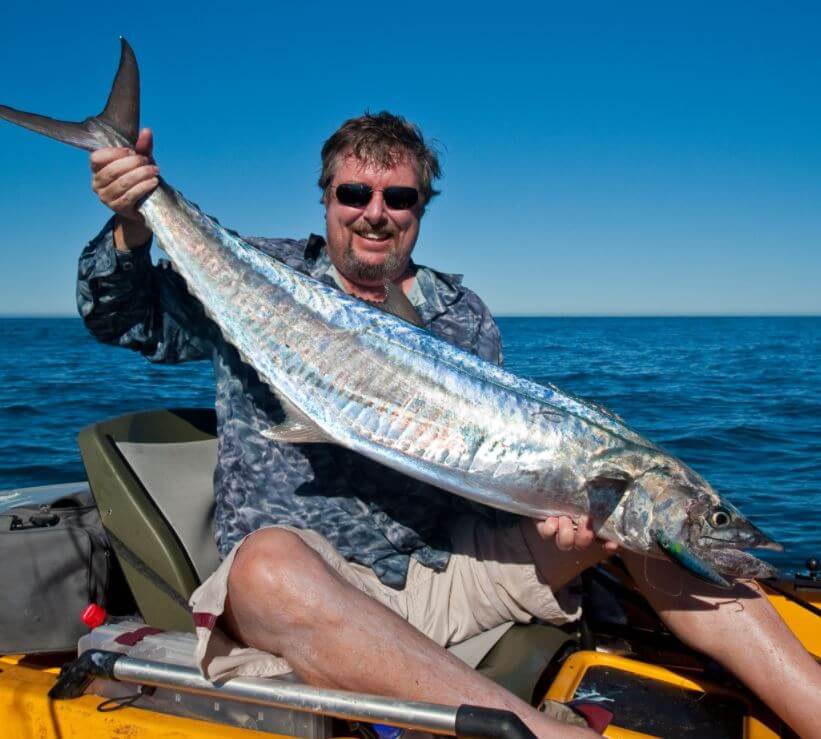
Although there are two types of Spanish mackerel, the narrow-barred is more commonly encountered than the broad-barred.
Spaniards boast blistering speed when hooked and are often found in relatively shallow water, making them accessible to most boat anglers and even shore fishers in several locations.
They are a species often targeted by anglers ballooning out baits from the shore around Quobba, Dirk Hartog Island and Steep Point, but will also hit whole fish baits — pilchards and garfish — that are cast and retrieved, and a wide range of lures.
Spaniards will often be found in numbers along significant drop-offs in 10m to 20m of water and working these sorts of areas is a great idea for boat fishers.
Trolling minnow lures is probably the most popular method for catching Spaniards, as it enables the angler to work the likely area until the fish are found.
The trusty old Halco Laser Pro is a WA legend when it comes to catching Spaniards. Don’t be afraid to troll quite fast, as Spaniards prefer a bit of speed.
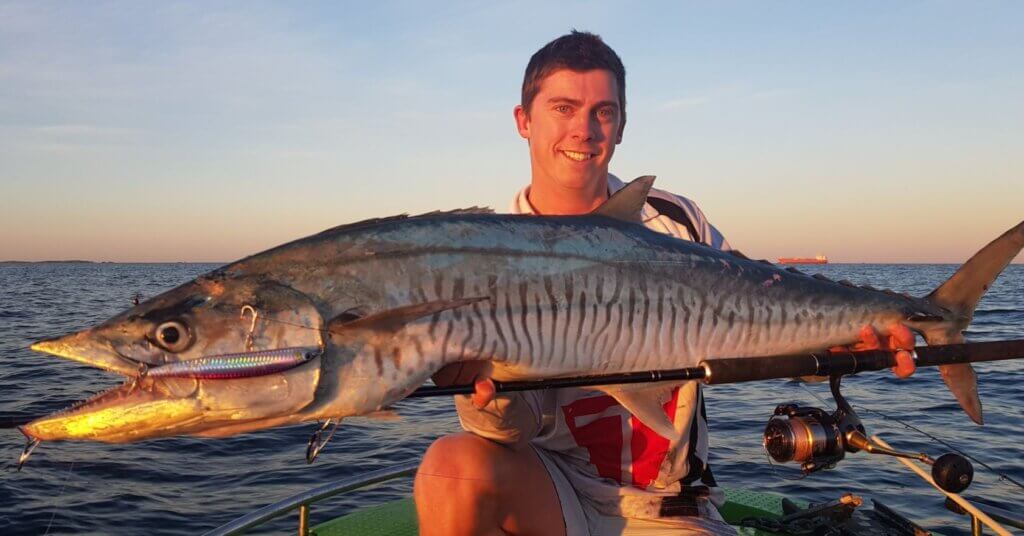
Spaniards will also respond to minnows, metals, jigs and even poppers and stickbaits.
A favoured method for some anglers, including me, is to troll until the fish are found, then start casting in that area. Having a floating whole fish bait drifting around while chasing other species is also a good idea in areas where Spaniards are found.
Some of the locations not already named that consistently produce great offshore Spaniard fishing are the (aptly-named) Mackerel Islands, Exmouth Gulf, Abrolhos Islands, Montebello Islands, Kalbarri, Dampier and the west side of the Ningaloo Reef.
Wire is recommended when Spaniards are likely to be encountered, as their sharp teeth can snip through mono line easily, however I do find I often get less hits when using wire. Single strand is definitely best if you want to use wire.
When casting lures, an erratic and speedy retrieve is best. Tackle of 10kg to 15kg is all that is needed for Spaniards, as they usually fight clean. The reel should have reasonable line capacity to cope with the initial run.
Hopefully you, and myself too, are tangling with a big Spanish mackerel soon!
